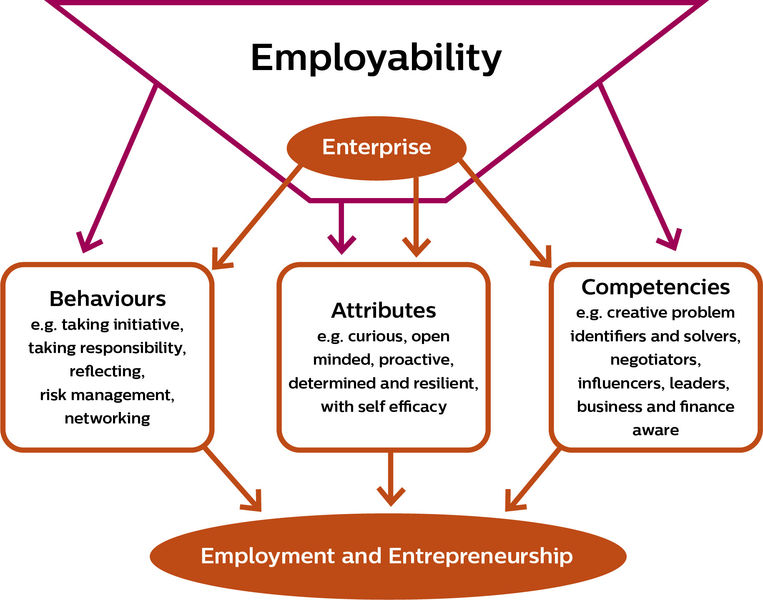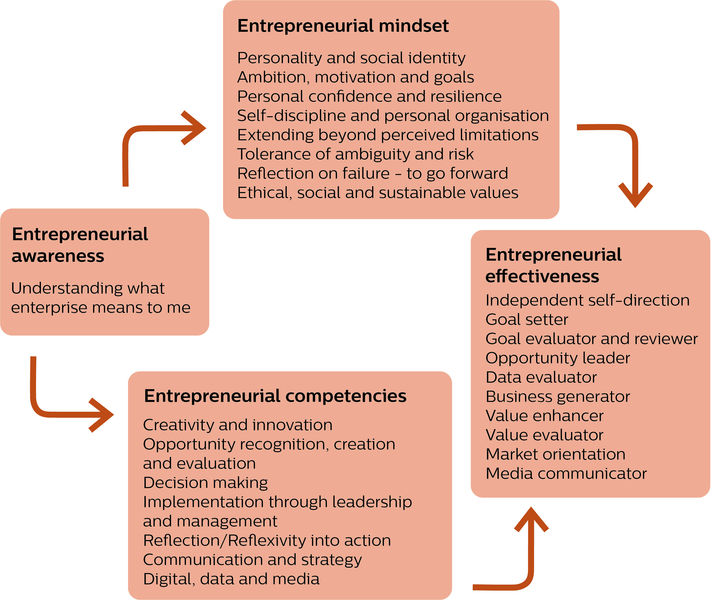Sustainability and Enterprise - Distant cousins or close bedfellows?
Andy Penaluna, Professor of Creative Entrepreneurship & Director - International Institute of Creative Entrepreneurial Development at the University of Wales Trinity Saint David talks about the link between sustainability and enterprise.
In recent years I have been carried along in a totally unexpected roller coaster of a journey. As a creative from the design disciplines I had never expected to be drawn into the world of enterprise and entrepreneurship, nor had I expected to champion the value of creative thinking in educational development. Nowadays I work in educational policy and practice, and hear similar ‘creativity shortfall’ discussions at events run by the United Nations, European Commission and OECD. Even the World Economic Forum is calling for an educational paradigm change, and I seem to have ended up in the middle of it, but how did that happen?
Over the years, and these are quite a few, I have learned substantially from my alumni, who have kept in touch and shared their experiences. Many care greatly about our environment and the plight of others, as has been evidenced in the type and nature of projects they have chosen to undertake. Cleaning beaches, repurposing old clothing and making something out of pretty much nothing seems to be the nature of their game.
Most recently Heidi, an alumnus who has started a business to support disadvantaged women in Haiti springs to mind, not least because last week she won an Award from the Federation of Small Businesses in Wales - under the Green Business of the Year Category. With the support of her partner Jon, also an alumnus, she was making real positive change, so I got in touch and asked her for her views.
“Enterprise in Education is key for encouraging the development and implementation of ideas such as ours in young people. Creative thinking and an entrepreneurial approach could solve or at least positively address a number of global issues. They are valuable, transferable skills for both entrepreneurs and intrapreneurs. With that said why wouldn’t nurturing such skills be key in todays Education system?"
So, you may ask, what was this green business award for?
"The idea of MAYKHER came about when my business partner and I wanted to find a way to tackle international social issues we felt passionate about. We were acutely aware of the negative treatment of women/girls in many areas of the world, opportunities for whom are limited purely based on their gender. We were inspired to address these issues, so decided to harness our knowledge and experience in Fashion and Design and enterprise into a tool to do good.”
Why not take a little look at Heidi’s video as it says so much about her drive and determination, and the way that she uses her entrepreneurial skills to the good of others.
Having had the good fortune to judge a Green Gowns Award a few years ago, and being prompted by Heidi, it suddenly struck me how close the enterprise and sustainability agenda have become. What madness is this? you may ask, but please hear me out.
Let’s start with the HEA / QAA’s Education for Sustainable Development: Guidance for higher education providers (2014), and see what it says.
Well for starters it is aimed at all disciplines, provides outcome frameworks for in curricular developments and almost immediately references employers and their representative groups, then moves on to discuss economic, social and environmental factors. It also suggests that rapidly changing demands will impact on the type and nature of learning required, with a call for critical thinkers and problem solvers. Incidentally, ‘Business and Industry are considered to be key factors’ (p.6). Moreover, the guidance claims to be future facing, encourages interdisciplinary thinking and adaption to novel situations. Learning through reflection helps learners to recognise new connections and interactions; ideally, ones that result from real world experiences and understanding / learning from the diverse perspectives that result.
Perhaps we can take for granted that this requires innovative approaches to teaching and learning that develop value metrics in authentic environments, and that divergent views are encouraged.
So now let us turn another document over, one with which I am somewhat familiar with, having led its development – the QAA’s new 2018 version of the original 2012 Enterprise and Entrepreneurship Education: Guidance for UK Higher Education Providers. The start sounds familiar, as it is designed for any discipline, provides interventions that lead to a self-determined professional life and aims to have a positive influence on students’ creativity and innovation, impacting on behaviour change and active citizenship. In this guidance learners are expected to seek out new opportunities, have higher aspirations and be resilient / better adapted to change, but let us dig deeper, starting with the definitions.
Enterprise is defined as the generation and application of ideas, combining:
“…creativity, originality, initiative, idea generation, design thinking, adaptability and reflexivity with problem identification, problem solving, innovation, expression, communication and practical action” (p.7).
Whilst:
“Entrepreneurship Education is defined as the application of enterprise behaviours, attributes and competencies into the creation of cultural, social or economic value” (p.7).
Social entrepreneurship, green entrepreneurship and intrapreneurship are cited as goals, and connections between these competencies and employability are made explicit. I could go on, but hopefully by now a picture is emerging, and it is simply this - both agendas place a high reliance on creativity and innovation, which in turn relies upon resilience and adaptability. But is this common thread all too often overlooked I ask?
Other triggers lead me to think so, for example back in 2014 I had the good fortune to sit in on a well-known University’s sustainability conference in the South West. One of the presenters made a great case on the need for creative thinking and outlined the challenges this brought to our education system. Initially they were applauded rather loudly, then delegates gasped as they outlined that his presentation was totally based on the QAA’s 2012 Enterprise and Entrepreneurship Guidance. I looked at their confused faces and wondered why this was the case?
Perhaps this dialogue needs an agenda hike, as I suspect this experience was unusual and that these insights may not be well known. However I also suspect that the all too prevalent silo mentality that we see in our Universities has once again claimed a victim, that of being creative. Joining dots that need connecting has become my role, and dispelling the myth that entrepreneurial learners are money-grabbing enemies of the sustainability agenda is one of my goals, because in my experience this could not be further from the truth. When I see the impact of entrepreneurial learning around the world I see communities reinvigorated, individuals given a sense of self-belief and creative connections leading to new ways forward. Heidi is a great example.
I therefore put it to you that rather than being seen as two different ends of the spectrum, enterprise and sustainability educators should work more closely together - for the betterment of all. But what do you think?













